Lalit is a chain of luxury hotels in India, and has recently opened its first branch in London in what used to be a grammar school. This is located at the end of Tooley Street that is near Tower Hill. Incidentally, if you are travelling there in a vehicle then bear in mind that at the time of writing the area is a maze of roadworks and closed streets, which bamboozled both sat-nav systems that I tried, so allow plenty of time.
Within the hotel, in what used to be the main hall of the school, is Baluchi, which offers dishes from across India, though the name presumably refers to the people of Balochistan in Pakistan. One unusual feature is a “naan’ery” (bread bar) where naans are cooked in a cast iron oven and offered as a complete meal with dips and even a wine pairing of their own (at £35 for four breads). The vast dining room is hung with tapestries and silks, and features a trio of impressively large chandeliers from Hyderabad. Tables were very well spaced. At one end is a handsome bar – it is a genuinely impressive dining room. The executive chef is Arup Kumar Dasgupta, He spent three years as executive head chef at the Thistle City Hotel in the Barbican, and before that Arup was executive chef at the Holiday Inn Mayfair, and also held the same position at establishments such as the Larkfield Priory Hotel and Restaurant Indien in Juan Les Pins, France.
The wine list was extensive and contained some interesting bottles, such as the lovely JJ Prum Kabinett at a modest £36 given its retail price of £17, and unusual bottles such as White Dot Moschofilero- Roditis from the Peleponnese, at 330 compared it its shop price of £9. Yet some bright spark decided they couldn’t be bothered to print the vintages on the list, the height of laziness on a wine list. Who is going to pay £175 for a Remoissenet Nuits St Georges Les Damodes without knowing the vintage? To take another example, Chateau Simone Palette is a good wine, but its current retail price is £43 for the 2014 but £74 for the 2009 and £48 for the 2005, so who knows whether the list price of £140 is excessive or not unless you know the vintage? To go to the trouble of producing tasting notes for each wine and then skipping the vintage is simply bizarre. It is as if you were shopping for a car and a catalogue described it simply as a “Mercedes” – would that be an A class, an SL or an AMG? I gave up and ordered beer, but it turned out that Kingfisher was an excessive £7 for a small bottle, an indefensible eight times its retail price. A small bottle of mineral water was £5.50.
Popadoms came with mango chutney and a slightly spicier mango and garlic chutney, which were made in the kitchen and were a cut above the ones from a jar that most Indian restaurants serve. Monkfish with black onion seed, horseradish chutney and kasundi, a Bengali mustard relish (£16.50) was a touch dried out but had a nice spice marinade (12/20). This was much better than a dish of scallops, which came with brown crab puree, roasted red peppers and Oscietra caviar. The problem here was the main ingredient: even before tasting these scallops they appeared flabby, and so they were. These were cheap scallops: small, entirely lacking any inherent sweetness and with poor texture; these were some of the worst scallops I have eaten for some time. This shambles of a dish was priced at £20.50. We tried two of the scallops just to check whether they were as bad as each other (they were), and couldn’t eat any more (8/20).
A dish called “mushroom miloni” (£15.50) had ceps, tandoori Portobello mushroom, morel pilau, peas and a tomato butter sauce. The Portobello mushroom lacked flavour but there were decent ceps and morels in the dish, though it sorely lacked spice (12/20). Methi chicken (£17.50) came as a large block of roast (Norfolk) chicken with spinach leaves, and a tomato and fenugreek sauce on the side. The chicken was fine, but because it was served as a single piece there was no opportunity for the meat to absorb the spices, which is why every other methi chicken I have ever seen has small pieces of chicken, each having the chance to absorb the fenugreek flavour of the sauce. Here the fenugreek was barely present, the sauce tasting mostly of tomato. I will say that the spinach leaves were carefully cooked, and in some ways were the best thing on the plate (11/20).
Black dhal was slow-cooked overnight and had reasonable texture, though I have had many better versions of this classic dish, both in the UK and India. Still, it was fine, as well it might be at a crazy £15 for a portion (13/20). Can you imagine the profit levels on this, a bowl of lentil curry? By comparison, the significantly better version of this same dish at Jamavar, in Mount Street in Mayfair and arguably the best Indian restaurant currently in the UK, is £7 (at The Brilliant in Southall, a main course sized version of the dish is £6). Back at Baluchi, bhindi “chips” (£6.50) came in the form of very thin string fries, so thin that the flavour was mostly of the batter. These arrived in a little trolley rather than a plate, which made them a little awkward to eat, but they were pleasant enough (11/20).
Naan and paratha had reasonable texture (12/20). A raita rather bizarrely came with avocado – why not at least offer a plain one as an alternative? We sampled one dessert, which comprised a quite good gulab jaman, a flavourless rice pudding and a chai ice cream, which was harmless enough (12/20)
Service was well-meaning but was a long way from being a well oiled machine. Our waiter asked “who ordered what?” when delivering the starters, which may be OK in a greasy spoon in Walthamstow but not in a place at this price point and level of ambition; even pretty basic high street chains generally manage better than this. There was also a worryingly long gap after we finished the starters before the plates were removed, despite there being plenty of staff. At least, when we were asked about our dishes and I mentioned the problem scallops, they did the right thing and listened sympathetically (and later removed the dish from the bill without being asked). The bill came to £69 a head, with just a couple of beers apiece, even with the scallops removed. If you drank wine and had a dessert each plus coffee then a typical cost per head will be nearer £80. This is a great deal of money, and at this price point Baluchi is clearly trying to establish itself as a premium Indian restaurant along with the likes of Jamavar and Trishna. Sadly it entirely fails to deliver at anything close to this level. It is a pity, as the room is striking and could potentially be a fine venue for a restaurant, but both food and service here do not do anything like justice to the lovely décor.










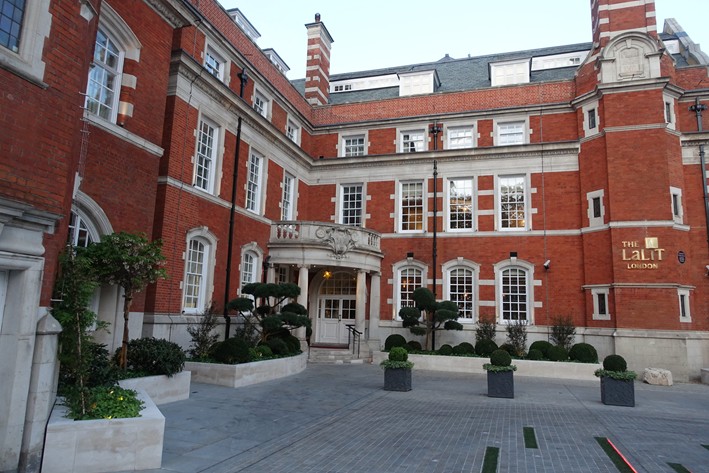

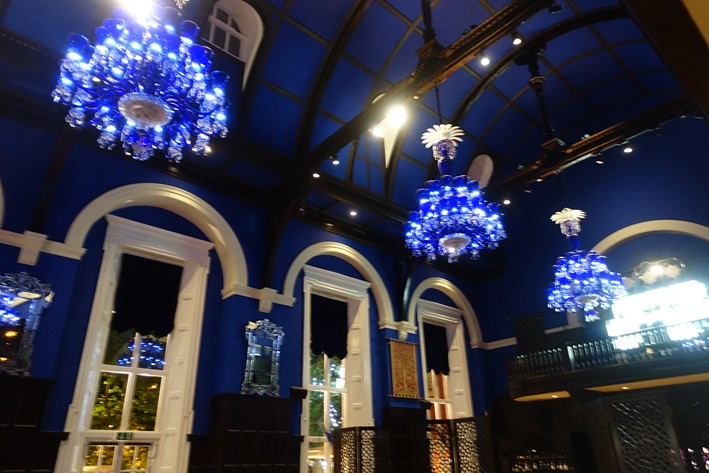
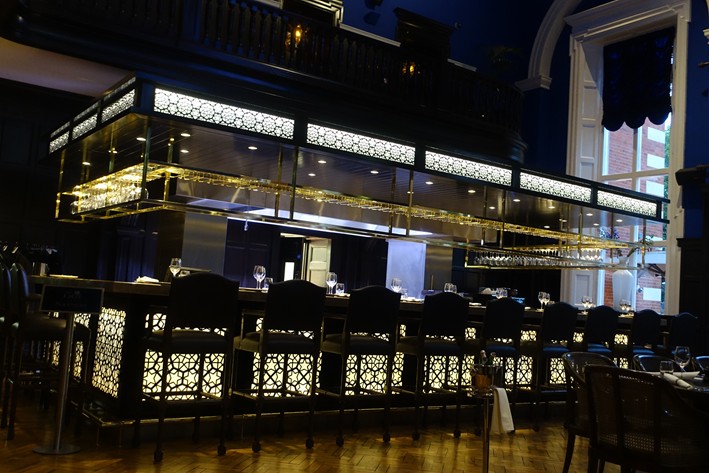
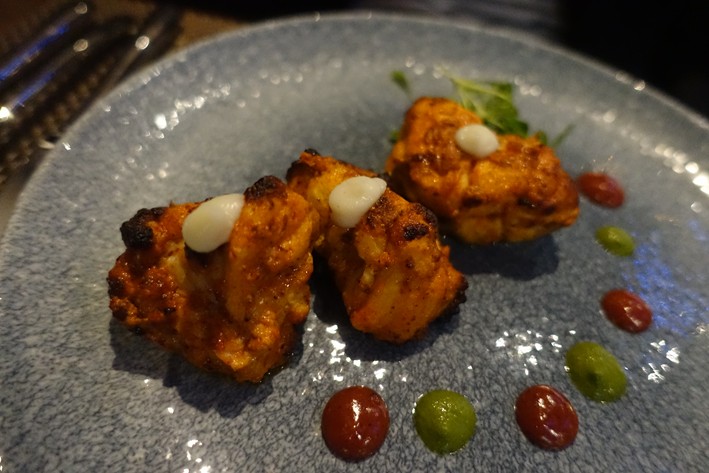
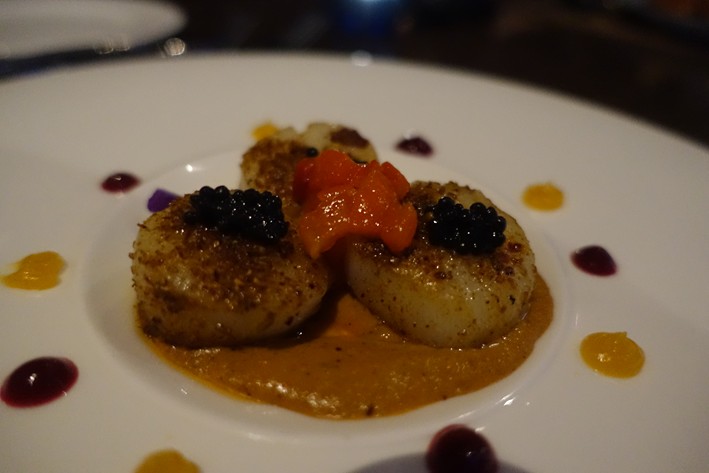
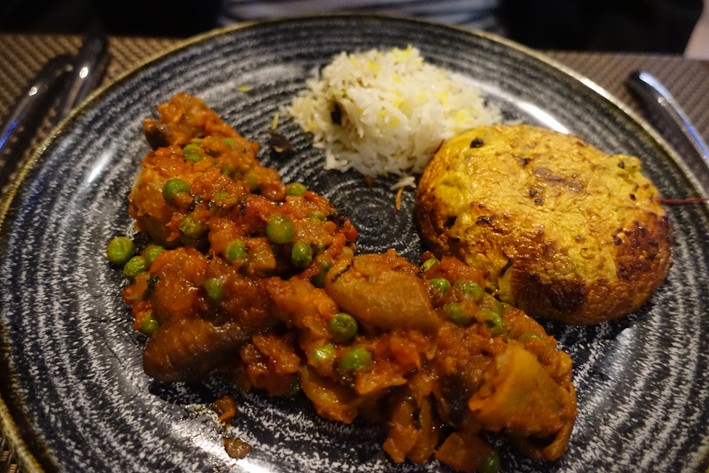
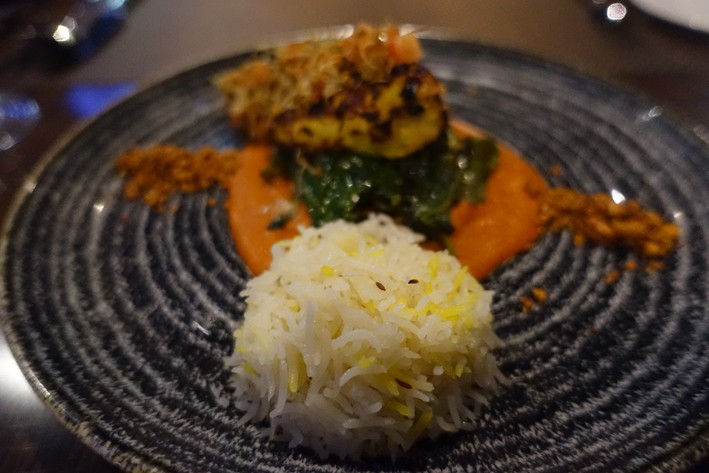
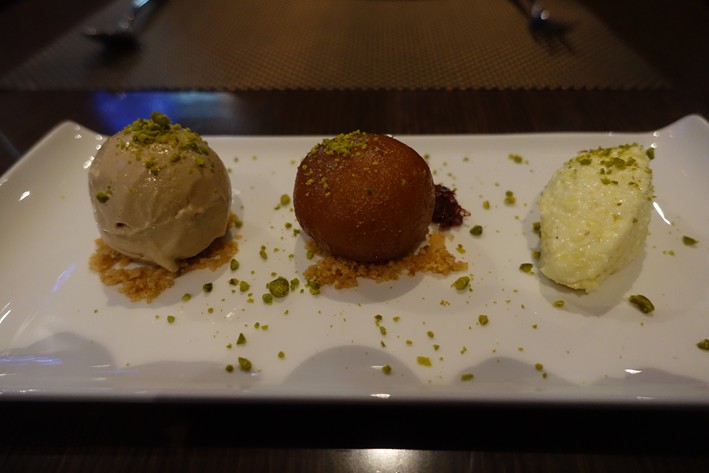

Add a comment
Thank you for submitting your comment, this will be checked and added to the website very soon.
User comments